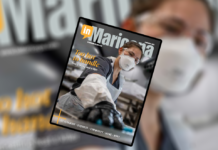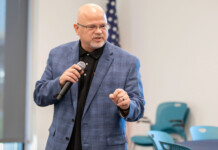
Mr. Hunt, I have seen you many times in town and have said hello and shook your hand. In all, the exchanges have been pleasant. In fact, just the other day I saw you at the grocery store and said hello.
This was after I had published my Small Business Support Plan. Not then, nor via my city email address, nor my campaign website did you choose to ask me about the plan that I had published. You chose to write an “Open Letter” without sending it to me directly.
Your letter was politically expedient because your goal was to further your support of your chosen candidate, not seek to help me make the plan better. Of all the critical assessments of the plan I have received, you are the only person who chose to send it to all the local media outlets.
In fact, to this date, I have never received any direct communication from you regarding my plan so let’s stop the charade that the letter was, in some way, meant to help me. Just because feedback is critical doesn’t mean it isn’t hostile. I am happy to reply, but let’s call it what it is.
I am not going to argue with you over what you said in 2008. I support helping our small businesses by lowering development costs through tax incentives and you have made it clear now that you don’t.
I attended the first two city of Maricopa Economic Development Summits after being elected. I have not attended the last two. Councilmembers are neither required to attend, nor play any significant role in those summits.
As mayor, I would help to host those meetings. The mayor and vice mayor attend regional and national economic development conferences and trade shows. It would be redundant and waste taxpayer money to have all councilmembers attend those conferences. As mayor I will be representing Maricopa at those events.
I have the experience and understanding of the developments and projects Maricopa is involved in, what properties are available, what types of businesses our demographics and population data can support, and how each type of company fits into the overall vision and design for Maricopa. In my first year at the National League of Cities conference in Washington, D.C., I made a presentation on how growth in Maricopa has affected development to representatives from around the country. I am active in both the League of Arizona Cities and Towns and National League of Cities and participate on a national steering committee and a national panel on community and regional development.
I receive a great amount of information that is brought back and shared with our city staff to use as best practice opportunities.
Back to the plan. The specific scenario you presented is not what is important. The numbers used and the calculations are not based on any actual agreement. I fell into the trap of arguing an example and I shouldn’t have.
I understand you don’t support the idea of incentivizing small business through tax credits. I do support the idea and have a plan that I will be working with city staff and council to present an actual program to benefit small businesses in Maricopa. The proposed plan will include a method of creating an incentive through sales tax credits applied against the value of Development Impact Fees.
I use the Walmart example because it is a real example of tax credits working to help spur development. The size doesn’t matter. What matters is the overall return on investment being greater than the cost of the investment.
If the city can create an opportunity for small businesses to expand operations and increase jobs, the result is an increase in overall economic impact. Without a solid base of service-oriented small businesses in Maricopa, we will not be attractive to larger industry.
By ignoring the small businesses in Maricopa, you are essentially creating a corporate class system geared towards taxpayer dollars incentivizing larger industry and ignoring those companies that truly add to the quality of life in a community – the businesses that have helped keep Maricopa viable.
Incentives for development are not an unconventional view. Ever since the dawn of economic development, there have been methods created to help business development boost local economies. Tax credits, incentives, fee abatement, fee deferment, micro-loan programs, forgivable loan programs, enterprise zones, and many more programs have helped small businesses fuel development opportunities and make funds available for expansion and growth.
Maricopa must consider all options to create the most advantageous competitive landscape for our community to attract all economic growth drivers. We have an opportunity to create the template for a new local economy. I am not going to claim to have all the answers, but at least I am asking the questions and putting ideas on the table to create opportunity.
I have talked about and dealt with developers, government finance professionals, and other national, state and local elected officials for nearly six years as an elected official. Because of the state of our economy, those conversations have centered on how to increase business and bring opportunity to our community. I have met with the agricultural community in Maricopa and understand how our farmers have an impact on our economy. I have met with the Ak-Chin Indian Community and have an understanding of how they play a role in our economy. I have built relationships that give me the proper perspective on what we need to do as a city to create the vision for our future.
My statement about the city being severely understaffed is not an assertion, it is a fact. Ask the city manager. Ask any director or department head.









![Maricopa restaurateur makes Food Network connection [Namkeen Dhaba]](https://www.inmaricopa.com/wp-content/uploads/2024/04/439456716_377105198650519_7536248579664805896_n-218x150.jpg)

![Merging lanes incite more 347 anger A merging lane sign sits on the side of State Route 347 northbound lanes during evening traffic on April 30, 2024. [Monica D. Spencer]](https://www.inmaricopa.com/wp-content/uploads/2024/04/spencer-043024-adot-merging-lanes-347-web-218x150.jpg)



![O’Reilly gears up for second Maricopa location An exterior view of O'Reilly Auto Parts on John Wayne Parkway on May 2, 2024.[Monica D. Spencer]](https://www.inmaricopa.com/wp-content/uploads/2024/05/spencer-050224-oreilly-second-location-web-100x70.jpg)